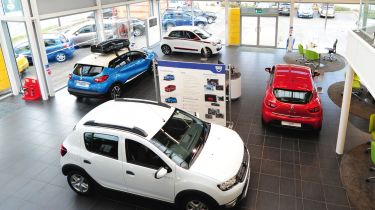New, used or nearly-new: which is best for you?
Deciding which is best for you is a tricky thing to do. We summarise the pros and cons to help you choose

Pros of buying a second-hand car
Cost – the price of a used car will almost always be lower than that of a brand new version. A car that has previously been used by someone will be less valuable than one that is fresh off the production line.
Proven – buying a car that’s just been released could expose you to technology and engineering that has not been extensively tested in the real world. While most cars are pretty reliable these days, being an early-adopter of a certain model doesn’t always pay off. It can take months for issues to present themselves, and sometimes years for them to become widely known. Issues like corrosion might not be immediately identifiable and could only materialise after the model has been on sale for a few years.
 Best used cars: our 2025 Best Used Car Award winners
Best used cars: our 2025 Best Used Car Award winners
Lower depreciation – a second hand car will lose its value more gradually than a brand new one. In fact, if you choose a car that's close to the bottom of its depreciation curve, it may be possible to run it for a long time and barely lose any money. In fact, you might be able to sell it for the same figure you bought it for. This won’t be the case for a new car, because it loses value as soon as it’s been driven.
More choice – there’s a huge range of second-hand cars on the market, far more than are available new. You may find that an older model that is no longer in production makes more sense for you, or that a previous-generation of a current model is better suited to your needs. You may simply prefer the styling of an older car.
Your money goes further – if you have £15,000 to spend on a New Ford Fiesta, you could buy a brand new Zetec model. But with a bit of legwork you should be able to find a nearly-new top-spec Fiesta Titanium X, which is far better equipped, for a similar amount of money.
Cons of buying a used car
History – you have no way of guaranteeing every element of the car’s history. It may have been clocked (tampered with so that the odometer reads a lower number of miles than the car has actually covered, thus making it seem more valuable) or it may even have been previously written-off in an accident. Reputable dealers shouldn’t be involved in either of these practices, but some unscrupulous sellers have been known to take advantage of naïve car buyers. You should always pay for a vehicle history check,
Most Popular

Suzuki’s new 10-year warranty is free – here’s how to get it
Tips & advice

Car dashboard warning lights: what does each symbol mean?

Electric car charging stations: public networks, charger types, apps and maps








